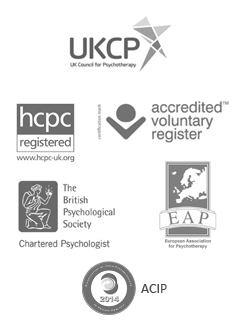When Trust Is a Problem
Photo by Lars Plougmann – http://flic.kr/p/6zyNNg – For illustration only
Reader’s Question
I am a 31-year-old male. I can’t trust anyone. Due to many experiences through my life I don’t see how anyone can be trusted. People get what they need from others and throw them aside once their usefulness is over. Like the rest of humanity I will always have the desire to want to be close to someone, but with not being able to trust anyone I don’t see how that will ever be possible. How can one learn to trust without going through the hurt all over again?
Psychologist’s Reply
Trust can be one of the most important parts of a relationship; the lack of trust can be the most damaging as well. Nonetheless, your difficulty in trusting others is not all that uncommon. This difficulty in trusting others may develop for many reasons. The most common reasons for this include previous negative experiences in relationships that have either aided the individual in developing fears of being hurt or simply just reinforced fears that were already there or learned. We know that trust starts very early for all of us when we are infants and dependent upon our caretakers to feed us, protect us, and comfort us. Sometimes, we over attach to the same sex parent and never develop the trusting bond with others of the opposite sex. When those around us fail to caretake, it can impact our trust of others later in life. Failing to learn to trust can lead to emotional distance in close relationships. The good news is that even if we do not experience trust early in life, we can learn to do so again.
The first step in learning to trust again is to understand that it is innate in all of us to trust and attach to other people. Despite being hurt in relationships previously, I believe this need stays around. However, it puts us in that place of wanting to trust people but feeling afraid to make it happen. We want to be close and intimate, distant from our loneliness, but are scared to do anything about it. Recognizing we need to trust others brings up uncomfortable feelings of vulnerability. Being vulnerable is a very difficult place for us to be. Some of us would rather stay safe than feel vulnerable. I see many people settle for safe and alone, sacrificing being happy and attached.
I think we have to be willing to put ourselves at risk to move forward. A difficult reality to face is that we might get hurt again. However, sometimes, that is the consequence of attachment. For many of us, we have to learn that, although the pain is great when we are hurt, it won’t kill us. It will be difficult, but we won’t die. We really have to believe we will survive a relationship ending and come out OK in the end. This can take time, and one certainly has to grieve and begin to move through the loss before doing so. Once you achieve this, you’re ready to go on to the next step.
To help along the way, here are some tips:
- Take your time.
- Like really take your time. After being hurt and going through a loss we need time to psychologically recover. We need distance and time to heal, get things in perspective, and grieve. Often we are hit suddenly with feelings of loneliness and the temptation to jump right back into a relationship with that person or someone new can be overwhelming. We need time to be single, with ourselves, and alone. This is often a substantial period of time when we grow tremendously. Allow yourself the privilege of that growth.
- Be safe.
- I don’t want this to sound contradictory to what I previously said about being safe. What I am talking about here is more the idea of making healthier choices about who you choose to be vulnerable with. Simply traumatizing yourself in bad relationship after bad relationship will only make it more difficult for you in the long run. You can’t put yourself back into a situation or a new situation and rebuild trust unless you feel safe with the other person. We need to really reflect on the situations we place ourselves in and decide if these were the best situations for us to be in or go back to. For many couples I work with in which one person has cheated, the couple often needs space to heal and then to feel safe with the other person before they can even begin to talk about rebuilding trust. If you can’t go back to a situation that can provide you with feeling safe, then I often recommend not going back.
- Be open.
- Finally, when in a new relationship, be willing to talk about your reservations and fears. Be open about your expectations and put your thoughts out on the table to give both of you a chance to try and work through them. Here’s where you get to practice being vulnerable, with the right person. Believe it or not, trust can actually develop from sharing and being vulnerable with others.
Please read our Important Disclaimer.
All clinical material on this site is peer reviewed by one or more clinical psychologists or other qualified mental health professionals. Last reviewed or updated by Dr Greg Mulhauser, Managing Editor on .
https://askthepsych.com/atp/2015/11/23/when-trust-is-a-problem/
All copyrights for this article are reserved to ask a therapist

